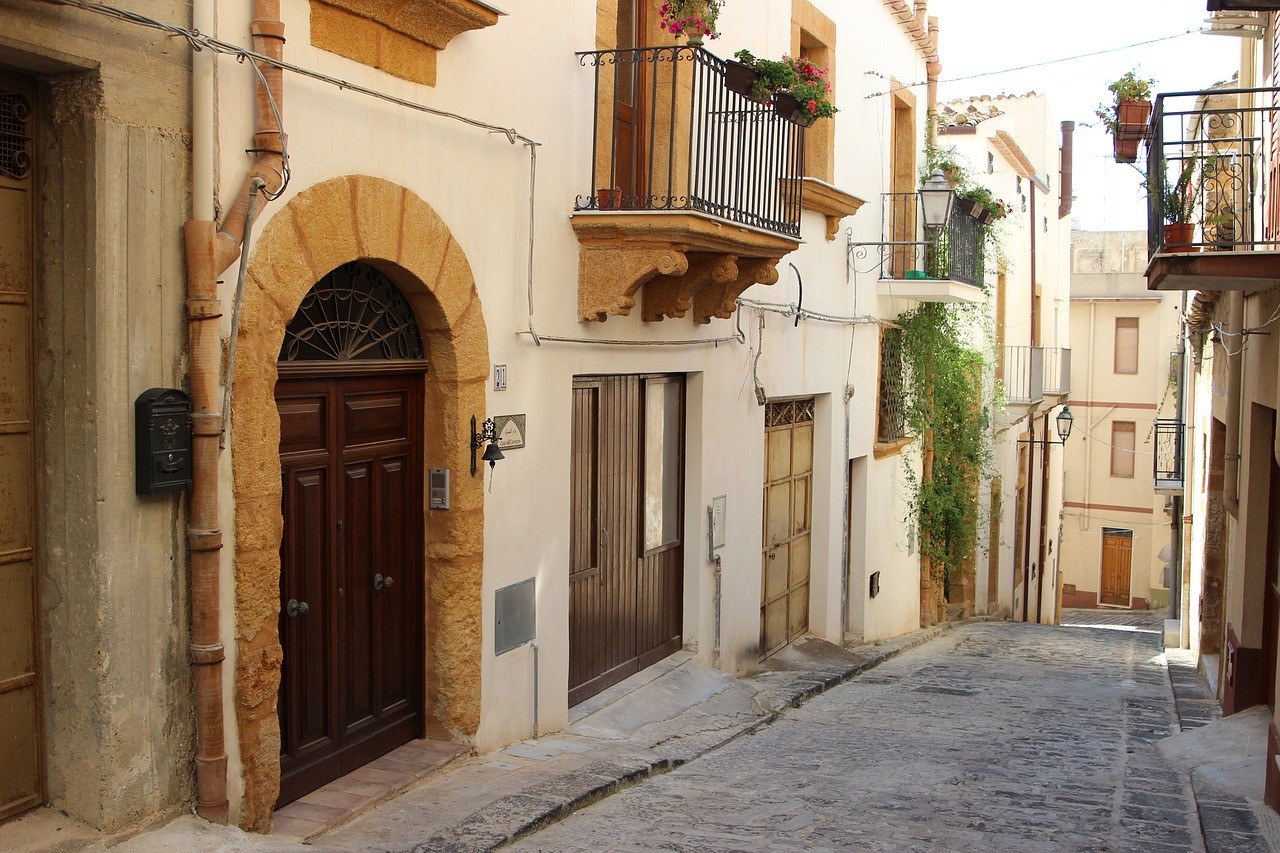I came across Airbnb [NASDAQ:ABNB] as an investor before a traveller.
I liked the business because it had a high return on invested capital. Simply because it uses the capital of others (their homes) to generate its income. It has grown to have over 4 million hosts today.
Last year, Airbnb was offering a very enticing hosting opportunity.

Source: Image by Samuele Schirò from Pixabay
Move to the village of Sambuca, Sicily (population 6,000) with your family for a year. Enjoy accommodation in a fully restored ‘1 Euro house’ while managing the letting of it to Airbnb guests — for which you get to keep the revenue from.
Airbnb would also pay your travel costs, Italian lessons for a month, and some cooking lessons!
Well, this opportunity received almost 100,000 applicants. And a lucky French family of five were selected and welcomed into the community by the local villagers.
For those with an interest in Italy, this is one of several schemes used to attract people to the dying regions of a country struggling with a demographic winter.
The ‘1 Euro houses’ are well-known and are still available all over Italy. Of course, there are strings attached. You must agree to renovate them, usually at significant cost.
More recently, some towns have upped the ante.
In Puglia, for instance, you could be given a grant of up to €30,000 if you agree to move to some struggling towns. Of course, the catch is that the money must be put toward buying and fixing up one of the older homes there.
Italy’s demographic winter
Crisis creates opportunity. Italy has struggled for years with people leaving the country for brighter prospects abroad.
Today it also faces a fertility rate (the average number of children born to every woman) of just 1.24. In Sardinia, just 0.95.
Deaths now far outstrip births. Italy’s average age is constantly creeping up and today is around 46.4, with almost a quarter of Italians over 65.
Like most things, this comes down to economic circumstances.
Many younger Italians don’t leave home because they can’t afford to. Italian jobs are in short supply for the young. For years, there have been structural problems in education, where people become ‘overqualified’ and can’t find jobs in the real world.
The only immediate solution to halt Italy’s decline is to open the country up to immigration, infusing the economy with new skills and investment.
Can you live in Italy?

Visiting Italy and our REIT investments some years back. Source: Supplied / Simon Angelo
Having spent a bit of time in the country, there is much to love. It is beautiful. People are friendly. Accommodation is cheap — especially outside the main centres. And you can enjoy some of the world’s best food and wine, at my estimation, for much less than what you would pay for similar in New Zealand.
On a Kiwi passport, you can typically stay in Italy for up to 90 days.
If you have access to an EU passport, as long as you like.
If you can trace Italian ancestry back to the formation of Italy as a country in 1861, you may qualify for citizenship under the principle of ‘Jure Sanguinis’ — or ‘right of blood’.
Alternatively, there are ‘retirement visas’ and ‘golden visas’, which are somewhat generous by EU standards.
If you have a minimum income of €31,000 (if applying alone) or €38,000 (if applying as a married couple) derived without needing to work in Italy, you may qualify for an Elective Residence Visa.
I see investment portfolios that deliver passive income from dividends of over NZD $70,000 per year, which would meet the married couple threshold. (Retirees, however, would also need to consider losing local superannuation entitlements if they are away for any length of time).
The other option is to invest €500,000 in Italian-listed companies, or €250,000 in an innovative start-up. This could qualify you immediately for an investor or golden visa in Italy.
An opportunity beyond the radar?
Yes, it is desirable to live near the beach in Auckland or Sydney. These places have low unemployment, great prospects, and an enviable work-life balance.
Yet they are probably also fully priced. Bargains are very rare. There are no ‘1 Euro houses’. Seldom are move-in grants available.
Instead, Italy also offers a great lifestyle, plus a rich culture, all at superb value.
La dolce vita — the sweet life — could be rather sweet indeed when it can come at such a reasonable price.
We want to hear from you
I hope that you’ve enjoyed reading our articles as much as we’ve enjoyed writing them:
- Your prosperity is our focus — which is why we are always working hard to uncover new opportunities beyond the radar for you.
By the way, I have a small favour to ask:
- Would you like to write a review of our work here at Wealth Morning?
- Do you want to let us know if our stories have inspired you in a positive way?
- Do you want to let us know if our stories have helped you become a more successful investor?
We truly value your feedback It encourages us. It helps us to do better. It helps us to reach further:
- So, if you’d like to leave us a review, it’s quick and easy. It will only take two minutes of your time.
- Thank you so much in advance for your kindness and generosity. Your readership keeps us going!
Regards,
Simon Angelo
Editor, Wealth Morning
(This article is the author’s personal opinion and commentary. It is general in nature and should not be construed as any financial or investment advice.)





Simon is the Chief Executive Officer and Publisher at Wealth Morning. He has been investing in the markets since he was 17. He recently spent a couple of years working in the hedge-fund industry in Europe. Before this, he owned an award-winning professional-services business and online-learning company in Auckland for 20 years. He has completed the Certificate in Discretionary Investment Management from the Personal Finance Society (UK), has written a bestselling book, and manages global share portfolios.